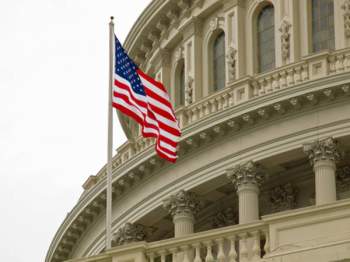
Who Wrote The Declaration of Independence

Popular In Constitution
Purpose Of Lifetime Appointment And Pros And Cons Enumerated Powers Bicameral Legislature Background Article 3 Of The Constitution We The People 1st Amendment Who Wrote The Constitution Judicial Review Equal Protection Clause 5th Amendment 10th Amendment Three Fifths Compromise
The Declaration of Independence is the methodological blueprint for the operation of a democratic, sovereign nation. Penned by Thomas Jefferson, who was aided by fellow patriots and political ideologists John Adams, Benjamin Franklin, Robert Livingston, and Roger Sherman, the Declaration of Independence not only secures the sovereignty of the United States of America, but also formulates the first democratic gubernatorial model.
Pursuant to their Revolutionary War victory in 1776, the newly-autonomous United States were eager to solidify a diplomatic presence, and as a result, the Continental Congress of the United States, the acting governing body at the time, requested that a doctrine be created illustrating the tenets of the new regime.
In his authorship of the Declaration of Independence, Thomas Jefferson not only cited various transgressions committed by the British monarchy under King George III against the colonists prior to the Revolutionary War, but also borrowed elements from political theory written by John Locke - a colleague of Jefferson's, as well as a prominent political philosopher.
According to John Locke, the foundation of an ideal governmental body was rooted in its determination to protect the interests of its citizens. In contrast to a monarchy, a totalitarian ruling body that possesses absolute power, a democratic central government is a conglomerate, symbiotic entity. It is comprised of various branches, which only function in tandem with one another. As a result, no branch can operate as a single unit, and therefore, no decision on a national scale can be made by a single governing body. In addition, Locke maintained that the innate rights of the citizens were of the utmost importance in any functional democratic central government, and rather than serve its own interest, an ideal central government would dedicate itself to protecting its citizens.
The ingenuity attributed to the Declaration of Independence is considered to be its penchant for humanism. Prior to the creation of the Declaration of Independence, world powers ruled their citizens with absolute power, employing kings, queens, monarchs, and emperors. Boundaries between the royalty and the commoners were established and any decision or action that stood to benefit the totalitarian ruling body was assumed to benefit every citizen of that nation.
The authors of the Declaration of Independence maintained that the collective interests of subjects living under a monarchy - Thomas Jefferson cited British monarch King George III as an example in the text of the Declaration - were only considered secondary to those interests of the monarch, if they were even to be considered at all. The Declaration of Independence allowed the citizens of the United States to overthrow a government which they perceived no longer served the interests of the people - a radical, yet revolutionary contrast unheard of at the time.
The Declaration of Independence illustrated the innate humanism of its authors. Not only was the central government considered to be an entity of public service, but the Declaration of Independence advocated for the fair and just treatment of the remaining British Loyalists still residing in the United States. The Declaration not only demanded that all British prisoners be released and allowed to return to England, but also required the return of any and all Loyalist property seized in an unjust manner subsequent to the end of the Revolutionary War.
NEXT: When Was The Declaration Of Independence Signed





















